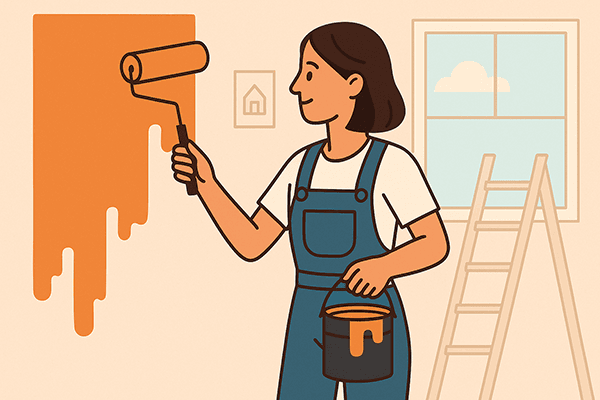Nice to have you here
at WG-Gesucht.de!
at WG-Gesucht.de!
Select Credit Report
Please choose a provider for your credit report.
 When moving out, tenants only need to renovate if there’s a valid contractual clause — normal signs of wear don’t require repainting or repairs.
When moving out, tenants only need to renovate if there’s a valid contractual clause — normal signs of wear don’t require repainting or repairs.
When moving out of an apartment or flatshare, the question of renovation almost always arises. As a rule, tenants are only obliged to renovate if this has been validly agreed in the rental contract.
According to § 535 of the German Civil Code (BGB), the landlord is responsible for maintaining the apartment in good condition. Many leases, however, transfer cosmetic repairs to tenants.
Such clauses are only valid if they do not unreasonably disadvantage the tenant. Fixed renovation intervals or mandatory end-of-tenancy renovations have been declared invalid by the Federal Court of Justice (BGH).
A renovation obligation exists only if:
If the apartment was handed over unrenovated, the tenant generally cannot be required to return it in a renovated condition. In such cases, the landlord remains responsible for upkeep and restoration.
In shared apartments, the situation can be more complex. If all residents are main tenants, they are jointly liable for the apartment’s condition. When one person moves out, the tenancy continues unchanged.
A renovation obligation only arises when the entire tenancy ends, not when a single person leaves.
However, in sublease arrangements, the main tenant is responsible to the landlord and can require the subtenant to leave their room in proper contractual condition upon moving out.
Before returning the keys, tenants should prepare a handover protocol documenting the condition of the rooms and noting whether cosmetic repairs are necessary.
It’s important to know: Normal wear and tear – such as small nail holes or slightly worn paint – is not considered damage and does not have to be repaired.
If major defects exist, tenants should try to reach an agreement with the landlord to avoid later disputes or financial claims.
Good preparation and clear communication help avoid unnecessary costs and conflicts with the landlord.
Only if there’s a valid clause or the apartment shows excessive wear and tear.
Yes, but usually only when the entire tenancy ends — not when a single roommate moves out.
Then you don’t have to renovate when you leave — the landlord remains responsible for maintenance.